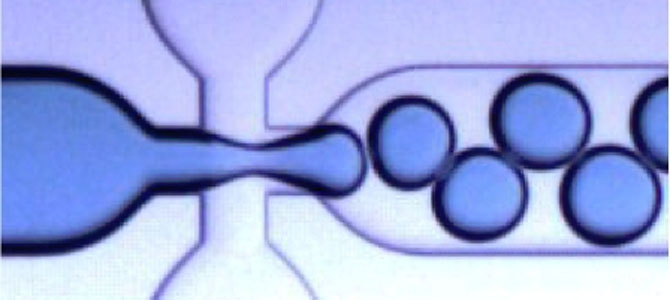Therapeutics & Diagnostics
Microfluidics

Advancements in cell culture and nucleic acid based diagnostics provide unprecedented opportunities to improve sensitivity and selectivity of diagnostics. An unmet clinical challenge that urgently needs addressing is the reduction of the time required for sample processing and detection. Current tests for the detection of pathogenic strains of microorganisms are laborious and time consuming (e.g. culture based methods). Rapid diagnostics promise early diagnosis of community-acquired and HCAI and timely application of appropriate interventions resulting in both economic and associated health benefit. Another challenge is that instrument-based diagnostics can be complex requiring specialist labs and trained personnel. The resulting high operational cost of these technologies restricts their widespread adoption, particularly in low income settings where AMR is a serious problem. The technological challenges that Loughborough researchers are addressing focus on delivering the required sensitivity and selectivity with significantly improved speed and ease of use at low cost. LU researchers have developed a number of underpinning technologies based on optical and electromechanical platforms that can be coupled with LU expertise in microfluidics to deliver low-cost lab-on-a-chip and lateral flow lab-on-a-stick type systems.
Additionally scalable microfluidic and membrane micro-mixing platform technology allows controllable production of nanoemulsions and microparticles for controlled release applications.
